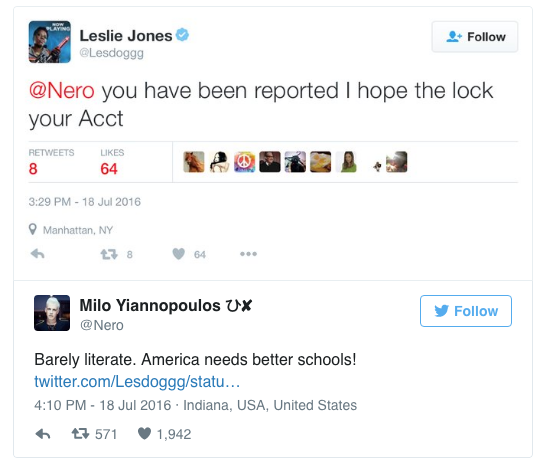Someone in charge of booking entertainment for a post-Republican National Convention party done goofed.
Third Eye Blind, a San Francisco band that peaked in 1997 but which continues to make new music and tour frequently almost entirely on the strength of Millennial sentimentality for the 8th grade, was hired to play a private show in Cleveland last night for charity. Held at the Rock and Roll Hall of Fame for an audience of recording industry big-wigs and lobbyists (as some noted ahead of time on Twitter), the performance was not technically affiliated with the RNC — but it was a half-mile away from the convention center, scheduled during the convention, and unsurprisingly packed to the gills with Republicans.
Once there, frontman Stephan Jenkins used his platform to condemn the Republican agenda and preach tolerance for LGBT people. These comments were met, again unsurprisingly, with booing from the red state-heavy crowd in attendance.
Third Eye Blind tonite at #RNCinCLE event: We believe in tolerance, acceptance
(Followed by boos) pic.twitter.com/WPRIEMZmEp
— Tina (@tinpant) July 20, 2016
“Raise your hand if you believe in science!” he proclaimed, according to several sources. At one point, according to Cleveland.com, Jenkins responded to the growing jeers with the remark “You can boo all you want, but I’m the motherf****** artist up here.”
But apparently worse (?) for those in the audience, Third Eye Blind pulled the oldest trick in the indie-band-protest book: refusing to play any of their singles, instead opting for only obscure and newer material — which, to be clear, would piss off most crowds. When I last saw Third Eye Blind, at a weird music industry party in 2014, the audience looked to be mostly San Francisco residents and bridge-and-tunnel folks in their 30s — all of whom willingly traveled and spent money to be there — yet nearly all of whom seemed deeply uncomfortable in that don’t-know-what-to-do-with-your-hands way until the band launched into one of their three best-known singles. (Cue a giant, enthusiastic sing-along.)
In any event: After responding to disappointed attendees last night and this morning on Twitter, Jenkins apparently decided Facebook was the right medium for issuing a statement. It reads:
We did not play an RNC event. We performed at a benefit for Musicians on Call because we support their mission in bringing music to the bedsides of patients in hospitals.
Given that the benefit was held in Cleveland, we suspected that convention types might show up and we let it be known we were there to support Musicians on Call and that we in fact repudiate every last stitch of the RNC platform and the grotesque that is their nominee.
–Science is science.
–Coal is not clean.
–Black Lives Matter.
–LGBTQ = equal.
–Separation of church and state (still a good idea)We could go on.
We have Republican friends, family members, and fans, and we love them all. What we reject is what their party has come to stand for. But in keeping with Musicians on Call’s message, we believe in the gathering power of music. With that spirit we don’t step back from our audience wherever or whomever they are.
Warmly, your friends in 3eb.
So, a few things: If they’re going to insist on continuing to make albums, the next one should obviously be called Separation Of Church And State (Still A Good Idea). But aside from my sense of internal conflict here — I’m not alone in having mixed (at best) feelings for Jenkins & Co. and yet this was an undeniably good-spirited, well-executed musical middle finger — I’m mostly wondering who was in charge of booking this show to begin with. A quick Google background check on the band’s politics would have led said individual to a Huffington Post article Jenkins penned in 2012, helpfully titled “Why We Aren’t Playing at the RNC.”
Suffice it to say, the guys will probably be a little more at home (literally and tonally) when they play Outside Lands on Sunday, Aug. 7. Ladies: Jenkins is known to be a fan of you. Start making your “science is science” tank tops now.


9(MDAxOTAwOTE4MDEyMTkxMDAzNjczZDljZA004))
9(MDAxOTAwOTE4MDEyMTkxMDAzNjczZDljZA004))
9(MDAxOTAwOTE4MDEyMTkxMDAzNjczZDljZA004))
9(MDAxOTAwOTE4MDEyMTkxMDAzNjczZDljZA004))


9(MDAxOTAwOTE4MDEyMTkxMDAzNjczZDljZA004))